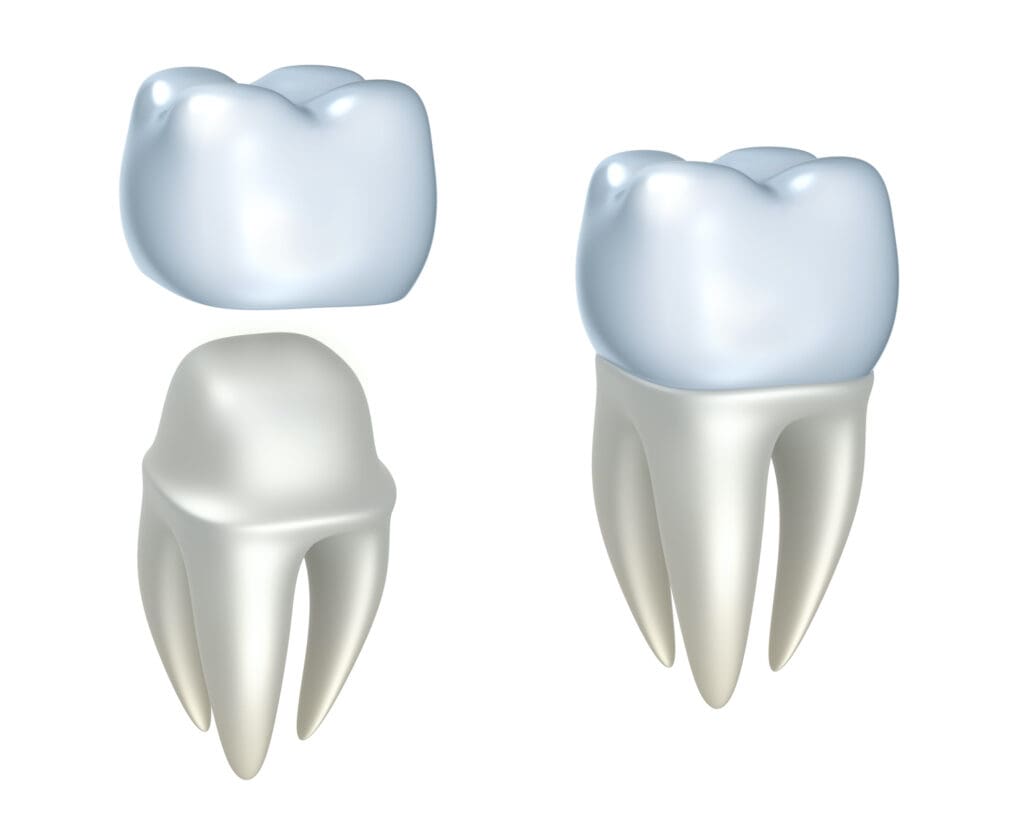Dental crowns are durable caps designed to repair and preserve damaged teeth. They fit snugly over a tooth, strengthening it while maintaining a natural appearance. With the right aesthetic attention, dental crowns in Washington, DC, could blend seamlessly with your existing teeth. While crowns can be made from a variety of materials, most patients prefer ceramic or porcelain for their color-match to natural teeth shades.

The Versatility of Dental Crowns in Washington, DC
Crowns often serve more purposes than just covering damaged teeth. They cap off dental implants in cases where a permanent tooth is missing. They could also help secure traditional dental bridges while protecting the neighboring teeth. This versatility makes them one of the most recommended treatments in restorative dentistry.
Treating Cosmetic Flaws with Dental Crowns
While crowns are a valuable restorative tool, they are often also used for aesthetic purposes. Color-matching crowns could help fix minor imperfections caused by discoloration or staining. They could also help reshape teeth to adjust crooked smiles or gaps. However, your dentist may also recommend porcelain veneers to help adjust your smile line. What kind of treatment you need often depends on the severity of your case.
Promoting Natural Tooth Health with Dental Crowns
A common application for dental crowns involves stabilizing a tooth post-root canal procedure. After removing an infected pulp, your dentist will often fill the extraction site with a biocompatible resin material. But this isn’t often enough to protect your tooth. A crown allows for normal tooth function while further sealing off potential infection sites.
Crowns are also valuable when getting a traditional dental bridge. Supporting a dental bridge places tremendous stress on natural teeth. This could cause them to wear down faster and become more susceptible to decay. Dental crowns placed over these anchor teeth bear the load instead of your natural tooth structure, reducing such risks significantly.
Treating Broken and Decayed Teeth with Dental Crowns
Dental crowns often serve as the last line of defense in preserving natural tooth structure. They can hold together shattered pieces or replace parts lost due to decay. In cases where large portions are broken off, exposing sensitive nerves and pulp, dental crowns could offer protection.
Completing a Dental Implant with a Crown
A dental implant complete with a custom-made dental crown offers a beneficial solution for missing teeth. The implant and crown often work together to closely mimic the look and feel of a natural tooth. This often allows for fewer dietary restrictions without worrying about damaging your restoration.
Frequently Asked Questions
Can you whiten a dental crown if it becomes discolored?
No, whitening treatments won’t change the color of a dental crown. Crowns are made from materials that don’t respond to bleaching. If your crown becomes noticeably discolored, your dentist may recommend replacing it to match your natural teeth.
What foods should I avoid after getting a dental crown?
We recommend avoiding hard, sticky, or chewy foods for the first few days, such as hard candy, gum, and nuts. These can loosen or damage the crown while it’s settling. After the initial period, you can return to a regular diet, but still be cautious with very hard foods to protect the crown.
How long do dental crowns typically last?
Tooth crowns usually last between 10 and 15 years with good care. Some crowns can last even longer if you maintain excellent oral hygiene and avoid habits like grinding your teeth or chewing on ice. Regular dental checkups help extend their lifespan.
Will getting a dental crown hurt?
No, getting a crown shouldn’t hurt because your dentist will numb the tooth during the procedure. You may feel mild sensitivity or soreness afterward, but this usually goes away within a few days. Over-the-counter pain relievers can help if needed.
How many visits will I need to get a dental crown?
It usually takes two visits to complete a dental crown. Your first visit involves preparing the tooth and taking impressions, and a temporary crown is placed. About two weeks later, the second visit is when your permanent crown is fitted and cemented.
Will a crown feel different from my natural teeth?
At first, a crown may feel slightly different as your mouth adjusts to it. Most people stop noticing it within a few days. A properly placed crown should feel natural and blend in with your bite. If it continues to feel uncomfortable, your dentist can make small adjustments.
If you have decay or damage, a dental crown may be able to protect and preserve your natural tooth. At Dupont Dental, we provide dental crown restoration for a variety of needs. Call us today at (202) 946-4720 to schedule a consultation and learn more about dental crowns.
